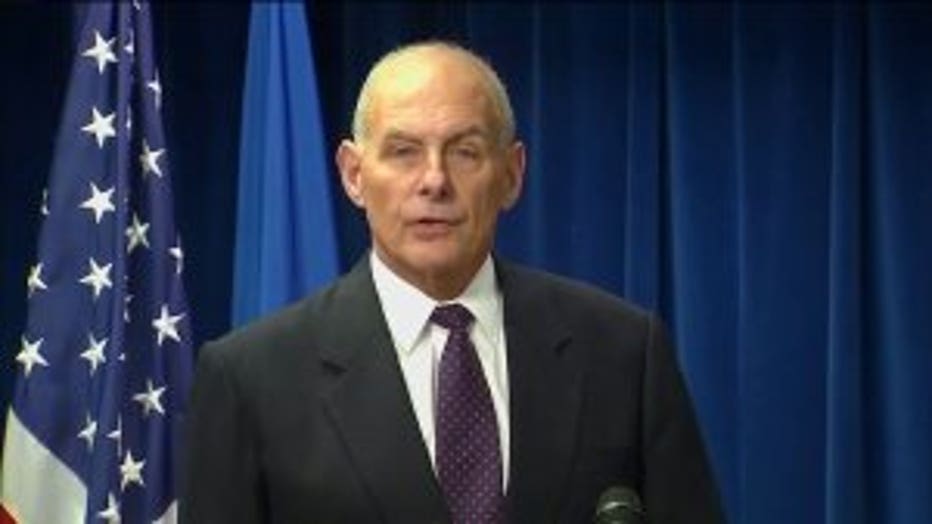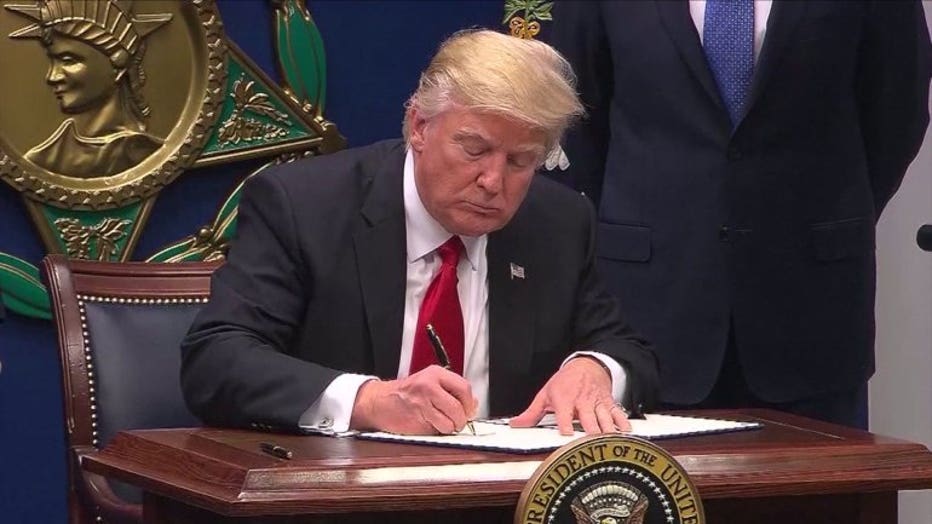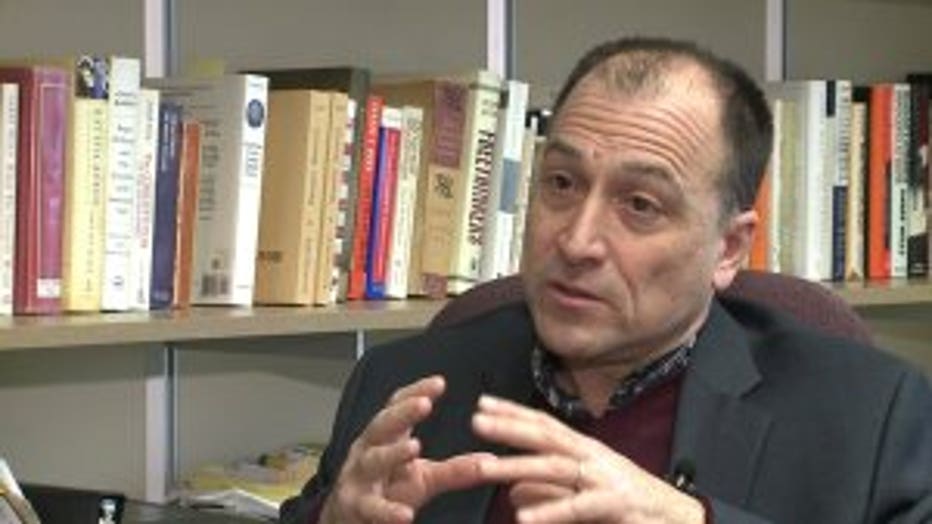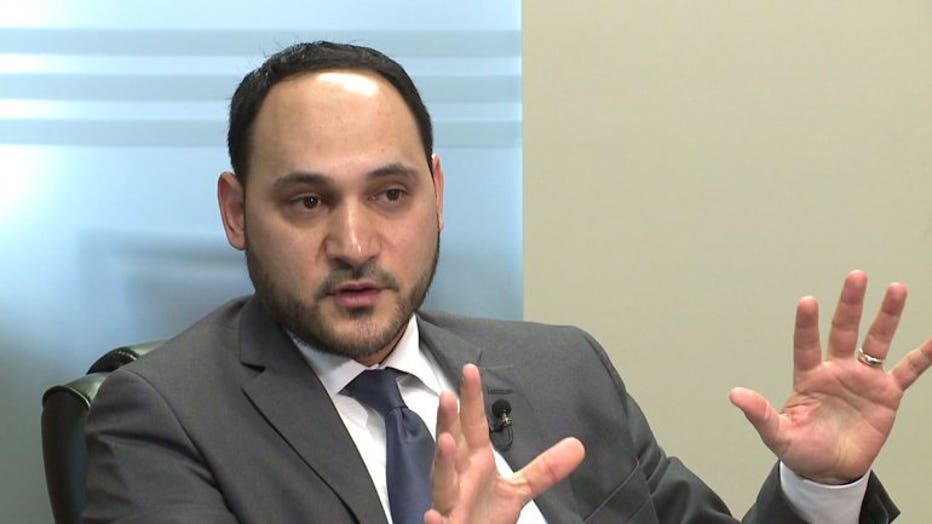"Travel ban 2.0:" Milwaukee Muslims say new travel restrictions are still a Muslim ban
Milwaukee Muslims say new executive order on immigration is still a Muslim ban
Milwaukee Muslims say new executive order on immigration is still a Muslim ban
MILWAUKEE -- It may be a new executive order, but Milwaukee-area Muslims said President Donald Trump's latest attempt at border security still amounts to a Muslim ban.
President Trump on Monday, March 6th signed the order restricting travel from six predominantly Muslim countries. The new travel ban is different in key ways than the one struck down by federal courts in recent weeks -- it no longer protects religious minorities from the affected countries, doesn't apply to people who hold valid visas, and excludes Iraqis from the restrictions.

Homeland Security Secretary John Kelly
"This is just Muslim travel ban 2.0," said Janan Najeeb, president of the Milwaukee Muslim Women's Coalition. "This is just a distraction, and really is doing nothing for the security of Americans."
President Trump said the new executive order would take effect March 16th and the previous order would be revoked on that date. The president wrote that he was replacing the earlier order "to avoid spending additional time pursuing litigation."
Confusion over whether visa holders were affected by the previous ban caused chaos at U.S. airports and led to protests in city streets, including in Milwaukee. Trump administration officials said they believe the earlier executive order and the one issued Monday are legal.
"Unregulated, un-vetted travel is not a universal privilege, especially when national security is at stake," said John Kelly, secretary of the U.S. Department of Homeland Security Secretary, at a Monday morning news conference.

President Donald Trump
Ed Fallone, a constitutional law professor at Marquette University, said the new executive order had a better chance of surviving a likely legal challenge. But judges may have long memories of the previous chaos, he added.

Ed Fallone
"Had the second order been the first one, it would've sailed through the courts," Fallone said in an interview Monday. "But because of this track record, I think it's going to be a little closer question whether the courts approve it or not."
Munjed Ahmad, a Milwaukee attorney who works on immigration and deportation cases, said uncertainty remains for his clients about how the new executive order would be implemented on March 16th.
"Because we don’t know what this rollout is going to look like and how this ban itself will be implemented by customs at various ports of entry, people who are here should stay here," Ahmad said. "People who have visas issued already should come as soon as possible."

Munjed Admad
Secretary of State Rex Tillerson said Monday that Iraqis were excluded from the travel restrictions because the Iraqi government had taken several security measures since January that would improve the country's vetting process.
Attorney General Jeff Sessions said three of the remaining countries were state sponsors of terrorism, while the other three served as safe havens for terrorists.
"More than 300 people, according to the FBI, who came here as refugees are under an FBI investigation today for potential terrorism-related activities," Sessions said at the news conference with Tillerson and Kelly.
The three men did not answer questions on-camera.
House Speaker Paul Ryan and U.S. Sen. Ron Johnson, both Republicans, said they supported the president's new action.
"This revised executive order advances our shared goal of protecting the homeland," Ryan said in an emailed statement to reporters.
U.S. Sen. Tammy Baldwin, a Democrat, slammed the executive order and said in a statement, "We are better than this."

